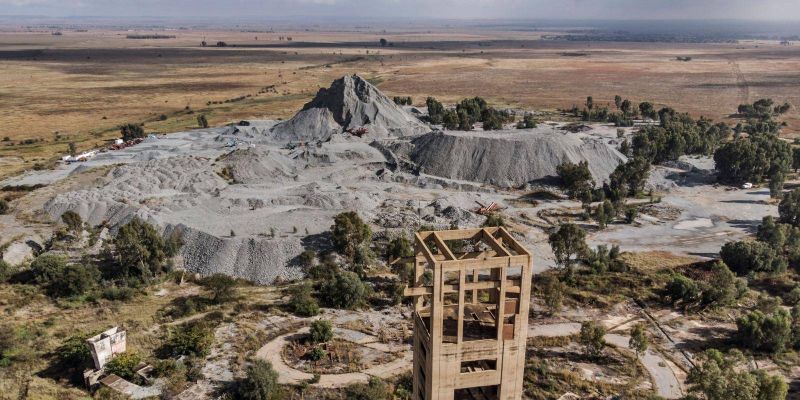
Mining unquestionably remains one of South Africa’s most important economic sectors, contributing 8-10 per cent of national GDP and, on average, each of its almost half a million strong labour force providing income for nine dependents.
But South Africa’s share of the global mining exploration expenditure dropped a staggering 20.5 per cent in 2020 to rank only sixth in Africa and represent less than one per cent of the global exploration spend – its lowest place in decades and a devastating position for a country whose geological attractiveness should protect its status as a top global player.
Despite still being valued at $77.4 million, this huge reduction in exploration has adverse knock-on effects for the pipeline of planned investment in brownfield, mid-stream and downstream mineral value chain projects, and the supply chain, all of which will shrink the industry at least for the foreseeable future.
South African mining is proving vulnerable to global competition for finance and skills, with restricted foreign direct investment into greenfield projects and marginal deposits – and it faces political risks such as an unpredictable regulatory landscape, fears of resource nationalism, and difficult community relations driving declining investment.
On 12 August, Exxaro Resources CEO Mxolisi Mgojo, although announcing positive results, singled out recent unrest and poor performance of state-run infrastructure as ‘clearly negative’ to immediate operational stability and long-term investment efficiency and attractiveness.
The overall effect is to significantly tarnish South Africa’s reputation as a top tier mining nation and leave President Cyril Ramaphosa’s investment ambitions facing a considerable battle to succeed when the industrial centrepiece of his country’s economy is now under threat and the worrying figures show rejuvenation is badly needed.
But this rejuvenation could prove hard to achieve, as AngloGold Ashanti’s sale of the Mponeng gold mine in 2020 was just the latest example of companies divesting to focus on more profitable geographies. And Anglo American’s move away from thermal coal operations highlights the global pressure the industry faces to reduce carbon emissions – an area in which South Africa has significant room for improvement.
Long-term political risks
Anxieties around policy and regulatory uncertainty are compounded by the longstanding concerns about the ANC leadership’s handling of its factional divisions. The ongoing failure of the national political leadership to prevent party-political infighting escalating into large-scale civil unrest has shocked international investors, reinforced by widespread media coverage of looting, vandalism, and the failure of law enforcement to intervene.
This fragile environment has been created by years of worsening socio-economic conditions and a culture of impunity emanating from the political class. The apparent absence of police and security forces, the slowness by national leadership to respond, and the reliance on vigilantes in communities, are all signs of just how ill-prepared public institutions are for civil strife.
Ramaphosa can no longer hide behind blaming ‘bad apples’ within the ANC as the narrative of ‘virtuous reformers’ struggling against corrupt factions has worn thin. Corruption allegations against Gwede Mantashe – Ramaphosa’s ally and minister of mineral resources and energy – simply demonstrates how far the rot has spread and casts doubt on the prospect of mining sector reform being conducted with openness and integrity.
The industry also anticipates government pressure to increase rents and revenues from mining. Although there is widespread agreement that the government must do more to tackle the socio-economic grievances underpinning aspects of the recent unrest, South Africa already has a comparatively high marginal corporate tax rate and three iterations of the Black Economic Empowerment regulations have left firms frustrated by moving goalposts and fearful of future changes. The long-awaited Mining Charter III in 2019 retained controversial provisions such as the open-ended power of the minister to make discretionary amendments.
There is also widespread suspicion increased revenue is not sufficient to heal South Africa’s deeper social wounds. Successive ANC administrations have talked of the ‘social compact’ between government, business, and labour. But this has become dominated by organized labour leaving many marginalized, and cyclical labour unrest, corporate anxiety, and the recent violence witnessed in the Gauteng and Kwa-Zulu-Natal provinces underline how strained these relationships remain.
The elusive social licence
Such dynamics create a troublesome context for what the mining industry calls its ‘social license to operate’, which is an acceptance by stakeholders, especially at community level, based on the perception of mutual benefit. Although the recent unrest had little direct impact on mining operations – MC Mining’s Uitkomst mine was the only one to shut its gates – social challenges are a continual headache for the industry. Rio-Tinto’s RMB closed in June having faced repeated bouts of local violence and tension over recent years despite significant efforts to improve community relations.
Community support is difficult to gauge, particularly when large operations border multiple communities, and it is increasingly hard to identify key stakeholders or develop strategies to engage them. National and local power structures are in flux, and stakeholder engagement requires maintaining relationships with multiple ministries, local administrative bodies, and traditional authorities, as well as civil society groups, unions, faith leaders, community leaders, and many others.
Echoing throughout all this remains the ANC party and its factional allegiances which brought Gauteng and Kwa-Zulu-Natal close to the brink of chaos. Companies are fearful of being caught between the state and its citizens, or as being cast as a scapegoat for government inability to provide for its people. Securing a social licence to operate in South Africa is becoming increasingly difficult anyway, regardless of investments in community well-being.
Christopher Vandome, Research Fellow, Africa Programme and Sheila Khama, Independent Consultant; Former Practice Manager, Energy & Extractives, World Bank; Former Director, Africa Natural Resources Center, African Development Bank.
